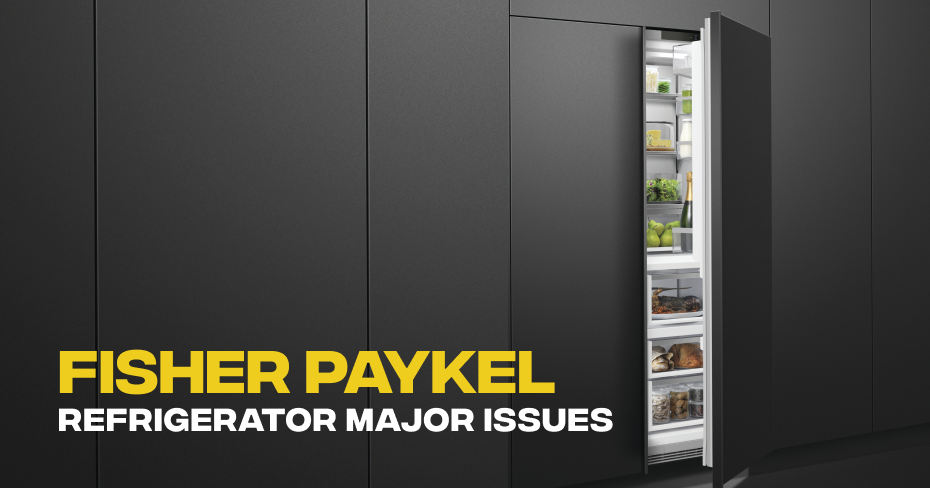
Fisher Paykel Refrigerator Unusual Noises
1. Listen for the Source
Is the noise coming from the back, bottom, or inside the refrigerator?
If your noisy refrigerator is rattling from the bottom, the drain pan is likely loose. Loud noises coming from the back of the unit could indicate an issue with the defrost timer, condenser fan, or compressor. If the loud refrigerator noise is coming from the inside of your appliance, the failing part is probably the evaporator fan, which circulates air through the freezer and fridge.
Keep reading to learn how to identify and address each of these potential fridge problems. Be sure to unplug your refrigerator before any cleaning or repair! To get trustworthy, professional assistance, look up your local Mr. Appliance.
2. Secure the Drain Pan
If a loose drain pan is causing the refrigerator to make loud noises from the bottom, this is an easy fix. Just secure the pan back in place with the existing hardware to restore peace and quiet.
3. Listen and Look for a Faulty Defrost Timer
If the noise you are hearing involves a ticking or scraping sound, the defrost timer may be faulty. Check for frost buildup in the refrigerator and freezer compartments, which is a sign of a failing timer (if the thermostat is set correctly). Next, listen carefully. Is the refrigerator making loud noise only once or twice per day, for about an hour? This is another sign that the defrost timer should be replaced. Ask a refrigerator repair professional to investigate further.
4. Clean and Inspect the Condenser Fan
Not all refrigerators have condenser fans. If yours does, it’s located behind an access panel on the back (exterior) of the fridge. With the fridge unplugged, inspect the condenser fan—including the rubber grommets—for any wear and tear. Use a soft brush to clean dirt and debris that could be obstructing the condenser motor fan. If this doesn’t solve your noisy refrigerator problem, try the other tips below.
5. Check the Evaporator Fan
To see if the evaporator fan is causing the loud refrigerator racket, simply push in the light switch in the freezer. If this fan is the culprit, the noise will get louder. Inspect the fan to see the extent of the damage.
Located at the back of the freezer section inside the refrigerator, the evaporator fan can be accessed behind a panel with screws or clips holding it in place. With the fridge unplugged, spin the fan blade with your hand to see if it’s operating smoothly. Check wires, grommets, and other components for signs of wear and tear. If the fan blade doesn’t move freely or there are other signs of damage or corrosion, it may be necessary to replace the fan and surrounding parts.
6. See If It’s Refrigerator Compressor Noise
Refrigerator compressor noise is a common complaint, but make sure this is really the source of the loud refrigerator. Start by unplugging the motor of the condenser fan, plugging your refrigerator back in, and seeing if the noise continues. If it does, the compressor may be the problem. Next comes the question of how to quiet a noisy refrigerator compressor: Because the compressor is so essential to refrigerator performance, we recommend having the issue confirmed and repaired by a professional.
Schedule Appointment